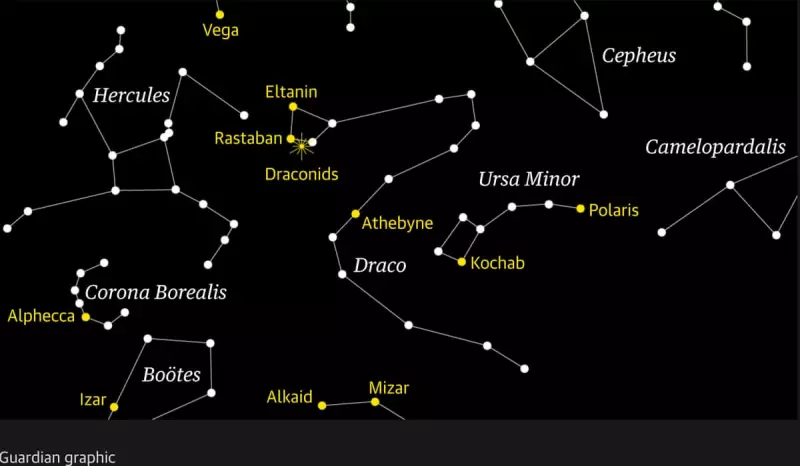
Skywatchers across Britain are in for a celestial treat this week as the annual Draconids meteor shower reaches its dazzling peak. Unlike most meteor showers that require late-night vigils, this cosmic display offers perfect viewing conditions for families and early birds.
When to Catch Nature's Fireworks Display
The Draconids will reach their maximum activity on Tuesday, October 7th, and Wednesday, October 8th, with optimal viewing from dusk until around 9 PM. This early evening timing makes it particularly accessible for younger stargazers and those who prefer not to stay up into the early hours.
What Makes the Draconids Special?
This meteor shower originates from comet 21P/Giacobini-Zinner, creating what astronomers affectionately call "cosmic dust" trails through our atmosphere. While typically producing around 10 meteors per hour, the Draconids have been known to surprise observers with spectacular outbursts of hundreds of meteors per hour.
Top Tips for Optimal Viewing
- Find dark skies: Escape city lights and find the darkest location possible
- Be patient: Allow your eyes 20-30 minutes to adjust to the darkness
- Look northeast: Focus on the constellation Draco, though meteors can appear anywhere
- Dress warmly: October evenings can be chilly, even during early viewing hours
- No equipment needed: Simply use your eyes - binoculars and telescopes aren't necessary
Perfect Conditions for UK Stargazers
This year's conditions are particularly favourable with the moon setting early, creating darker skies that will make even faint meteors visible. The shower's radiant point - the constellation Draco - will be high in the northwestern sky during peak viewing hours.
"The Draconids offer one of the most accessible meteor shows of the year," explains Dr Stella Collins, an astronomer at the Royal Observatory Greenwich. "Their early evening peak and current weather patterns across much of the UK create ideal circumstances for what could be a memorable display."
Whether you're an experienced astronomer or simply looking for a magical evening under the stars, the Draconids promise to deliver a celestial spectacle worth looking up for.





